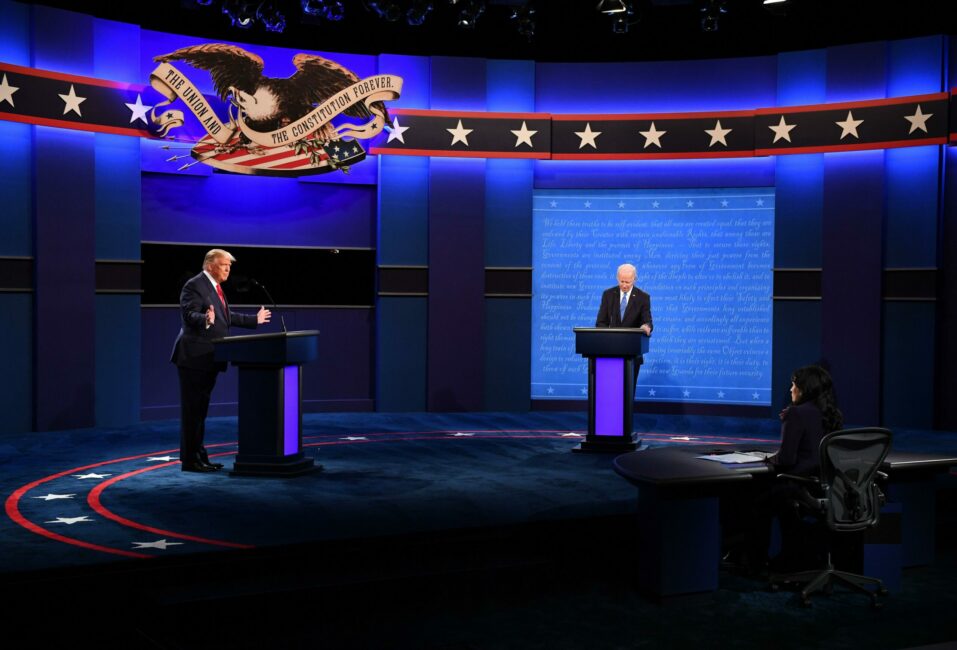Current News for Debate Moderators: Key Highlights
As the political landscape heats up with the upcoming 2024 Presidential Election, the role of debate moderators has come under intense scrutiny. The recent debate between Vice President Kamala Harris and former President Donald Trump showcased the moderators' influence on the discourse, with significant reactions from both the public and political commentators. Here’s a comprehensive overview of the latest developments surrounding the debate moderators.
Who Are the Moderators?
The moderators for the recent debate were David Muir and Linsey Davis, both prominent figures at ABC News. Muir, 50, has been the anchor of ABC World News Tonight since 2014, while Davis, 46, has a strong background in political reporting and has previously moderated debates during the 2020 election cycle. Their experience was expected to bring a level of professionalism to the debate, but the execution has sparked mixed reactions.
Background on the Moderators
David Muir: Known for his incisive interviewing style and extensive experience in political journalism, Muir has garnered several Emmy Awards for his work. His role in the debate was to ensure that both candidates had equal opportunities to present their views.
Linsey Davis: As the anchor of ABC News Live Prime, Davis has also moderated significant political events, making her a seasoned choice for this high-stakes debate.
The Debate Dynamics
The debate took place in Philadelphia and was marked by a fiery exchange between the candidates. Trump frequently clashed with the moderators, leading to a tense atmosphere. The moderators faced criticism for their approach, particularly regarding how they fact-checked Trump’s statements during the debate.

Key Moments from the Debate
Fact-Checking: Muir and Davis actively fact-checked Trump’s claims, particularly on sensitive topics like abortion. This real-time correction was aimed at providing viewers with accurate information but was perceived by some as overly aggressive.
Trump's Reaction: Trump described the debate as his "best performance yet," despite expressing dissatisfaction with the moderators, whom he felt were biased against him. He characterized the debate as a "three-on-one" scenario, suggesting that the moderators were not impartial.
Public and Media Response: The debate has drawn significant media attention, with various outlets providing live updates and analyses. Critics from both sides of the political spectrum have weighed in, with some praising the moderators for their diligence while others accused them of bias.
Reactions to the Moderators' Performance
The performance of Muir and Davis has been a focal point of discussion post-debate. Here are some notable reactions:
Support for Moderators: Some commentators praised the moderators for their commitment to fact-checking, arguing that it is essential in an era of misinformation. They highlighted the importance of holding candidates accountable for their statements.
Criticism of Bias: Conversely, many Trump supporters and conservative commentators have criticized the moderators for what they perceived as a pro-Harris bias. They argued that the moderators were too lenient on Harris while being overly critical of Trump.
Social Media Backlash: Davis, in particular, faced a wave of racist and sexist abuse on social media for her role in the debate. This highlights the challenges faced by female journalists in high-pressure political environments.
The Broader Implications
The role of debate moderators is crucial in shaping public perception during elections. Their ability to maintain fairness and impartiality can significantly influence the outcome of debates and, by extension, elections. The recent debate has reignited discussions about the responsibilities of moderators and the need for transparency in their roles.
Future of Debate Moderation
As the election season progresses, the expectations for debate moderators will likely continue to evolve. The scrutiny faced by Muir and Davis may set a precedent for how future moderators approach their roles. The demand for fact-checking and accountability is likely to increase, as voters seek clarity in a complex political landscape.

The recent debate between Kamala Harris and Donald Trump has underscored the pivotal role of debate moderators in the electoral process. With millions of viewers tuning in, the actions of David Muir and Linsey Davis have sparked significant debate about bias, fact-checking, and the overall integrity of political discourse. As we move closer to the 2024 Presidential Election, the performance of moderators will remain a critical topic of discussion, influencing not only public opinion but also the candidates' strategies moving forward.
For more detailed coverage and updates, you can follow the links to the articles from major news outlets such as The Wall Street Journal, Los Angeles Times, and ABC News.





